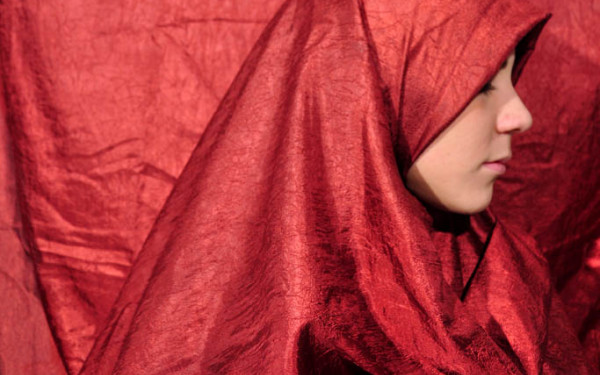The Right to Self-Determination and the Charter of Values
Social Justice Activist Leila Bdeir Speaks at Concordia about the Muslim Feminist Movement’s Response to Bill 60
Quebec feminists and other progressive forces are currently confronted with an “important philosophical dilemma” in the debate surrounding the wearing of religious symbols, says self-described Muslim feminist and social justice activist Leila Bdeir.
A founding member of the Collective des féministes musulmanes du Québec, blogger and professor of humanities and women’s studies at Vanier College, Bdeir kicked off the Concordia-based Centre for Gender Advocacy’s lecture series on race, gender and political resistance last Thursday by speaking about Islamophobia, media representations of Muslim women and the Parti Québécois government’s proposed Charter of Quebec Values.
The charter—which has not yet been passed in Quebec’s National Assembly—seeks to ban public sector employees from wearing “ostentatious” religious symbols such as turbans, hijabs, niqabs, kippas and large crosses. Some feminists have declared their support for the charter, also known as Bill 60.
“If [Quebec feminists] believe that the right to self-determination constitutes an essential principle for women’s equality, does this right also apply to women whose active self-definition leads to choices outside the Western secular norm?” said Bdeir, explaining the dilemma facing the province’s feminists.
“In other words, are Quebec feminists willing to live with a certain number of realities with which they are uncomfortable in order to respect the right to self-definition of all women?”
Bdeir offered an open letter written by 88-year-old former Quebec television personality Janette Bertrand as an example of how some feminists see Muslim women who wear a religious headscarf.
“At this moment, the principle of equality between the sexes seems to be compromised for the sake of freedom of religion,” reads the French-language letter published by La Presse on Oct. 15. The letter states that men used to, and continue to, use religion in order to “dominate women, put them in their place, meaning beneath them.”
Bertrand’s letter was co-signed by 20 other feminists, many of them well-known personalities in Quebec, such as Djemila Benhabib, an opponent of political Islam and candidate for the PQ in the 2012 provincial election, and TV host Julie Snyder.
According to Bdeir, the letter is just one example of “how a significant number of feminists aspiring to what they describe as ‘universal women’s rights’ actively reproduce paternalistic and oppressive practices.”
In wider society, Muslim women are often seen as both victims of oppressive religious practices—despite the protestations of Muslim women who say they freely choose to wear the hijab—and threats to state secularism, as in the case in the debate on the charter, Bdeir continued.
“Muslim women and their religiously motivated attire are now seen as the principle threat to laïcité and Quebec identity,” she said. “No longer are Muslim women only perceived as dangers to themselves, but they are now perceived to pose a threat to the nation as well.”
Bdeir told the audience that Muslim women are speaking up both in favour of and against the charter, but that a “double standard” exists that favours those on the pro-charter side.
“Rarely are Arab and Muslim women who come out in favour of the charter accused of not thinking for themselves by the majority group,” Bdeir said. “Theirs are taken to be the legitimate voices of reason in support of the project.”
CORRECTION: The original version of this article stated that Leila Bdeir is “a spokesperson of activist group Présence musulmane.” In fact, Bdeir is no longer a spokesperson for the group, as Présence musulmane no longer exists. Bdeir is, however, a founding member of the Collective des féministes musulmanes du Québec. The article has been updated accordingly. The Link regrets the error.

_900_600_90.jpg)
_900_597_90.jpg)


_600_375_90_s_c1.jpg)


4_600_375_90_s_c1.jpg)